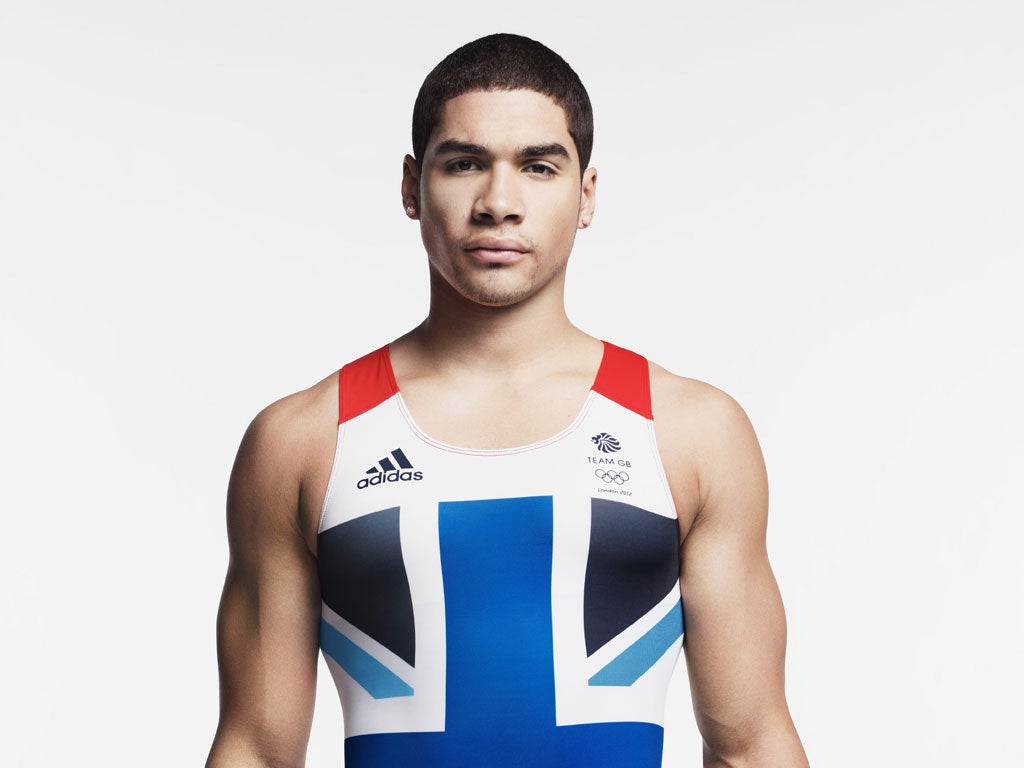The Independent's journalism is supported by our readers. When you purchase through links on our site, we may earn commission.
Olympic weekend watch: Louis Smith inspired by his Beijing breakthrough
2008 bronze medallist says home crowd will help strong team's bid for honours, writes Jack Pitt-Brooke

Your support helps us to tell the story
From reproductive rights to climate change to Big Tech, The Independent is on the ground when the story is developing. Whether it's investigating the financials of Elon Musk's pro-Trump PAC or producing our latest documentary, 'The A Word', which shines a light on the American women fighting for reproductive rights, we know how important it is to parse out the facts from the messaging.
At such a critical moment in US history, we need reporters on the ground. Your donation allows us to keep sending journalists to speak to both sides of the story.
The Independent is trusted by Americans across the entire political spectrum. And unlike many other quality news outlets, we choose not to lock Americans out of our reporting and analysis with paywalls. We believe quality journalism should be available to everyone, paid for by those who can afford it.
Your support makes all the difference.Louis Smith begins his campaign for a second Olympic medal this morning. Four years on from ending generations of dramatic underachievement in British gymnastics, he is back to improve on his famous bronze medal won in the pommel horse in Beijing.
Click HERE to view 'Artistic gymnastics: How to somersault like Beth Tweddle' graphic
Britain have never been as strong at gymnastics as they might have been, and so Smith's triumph in 2008 went some way to restoring prestige to one of the most demanding and creative Olympic events. His medal was Britain's first in Olympic gymnastics since the women's all-round team won bronze at the Amsterdam Games of 1928. Beyond that, it was the first individual medal since Walter Tysall won silver in the individual all-round in London 1908.
Having achieved this, Smith is now keen for more. "I'll do my easier routine, my 16.9 in qualifiers, that's what I always do," he said of today's qualification stage at the North Greenwich Arena. "There's no point risking falling off in qualification so I'll do my easier routine and I'm doing a high bar routine beforehand as well so that will probably get me into the swing of things." If Smith qualifies, the pommel horse final is one week tomorrow, on Sunday 5 August.
As a subjectively-judged sport, gymnastics can often provide real home advantage, with a partisan crowd seeking to sway the judges. Smith spoke of how he can use that positive atmosphere.
"The things that will be running through my head when I step up to compete are: 'I'm ready, I've got my nan looking over me, I've got the support of my friends and family in the crowd," he said. "I've been waiting 19 years for this, so it is just going to be all positive thoughts running through my head."
Smith remains Britain's most likely individual medal winner but they also have a chance in the men's team. Smith will be joined by Daniel Purvis, Max Whitlock, Sam Oldham and Kristian Thomas. If they rank in the top eight in qualification today they will compete in the team final on Monday afternoon. Smith, Purvis and Thomas did win European team gold earlier this year.
The British women, who have their qualification tomorrow, may lack anyone with as strong a chance as Smith but they are a good team and do have the experience and confidence of Beth Tweddle, who has won three World Championship gold medals and six European Championship gold medals in a decorated career.
"I can do the routine in my sleep," said Tweddle of her years of training. "I'm still not sure which routine I'm doing yet. I have two and I tried out both today and both went well."
Tweddle is now the leader of set of new British gymnasts. The 18-year-old Jennifer Pinches said that Tweddle has always been a hero of hers. "When I was younger I looked up to Beth Tweddle and now that I compete with her it's inspired me to become even better," she said.
Younger even than Pinches is Rebecca Tunney, who at 15 years old and 4ft 9in is the youngest and the smallest member of Team GB. "This time last year it wasn't in my wildest dreams to be here," she said.
Tunney has good support from her senior team-mate Tweddle, 12 years older than her. "She's got the determination and the will," Tweddle said. "If something is not working she is determined to stay there until it is right. She's got the skills and she's got that oomph about her that I used to feel as a youngster as well. She just wants to please every single time."
Join our commenting forum
Join thought-provoking conversations, follow other Independent readers and see their replies
Comments